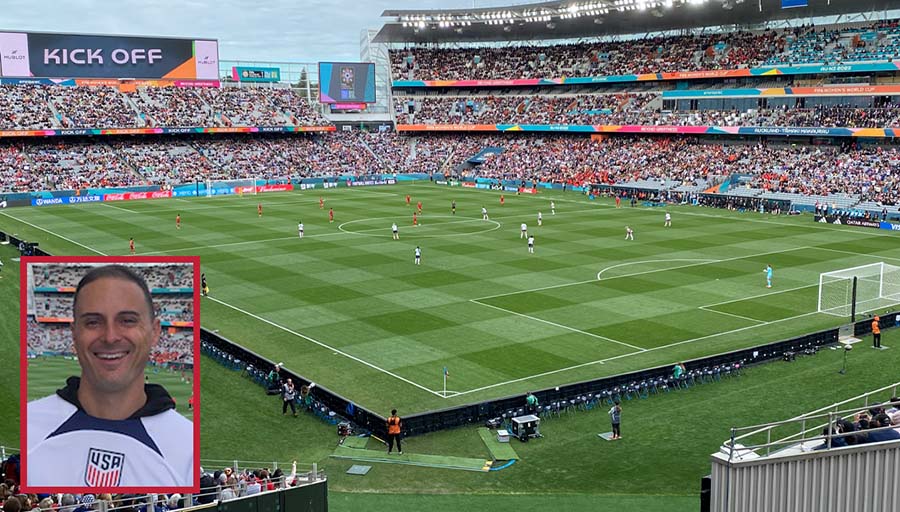The 2023 Women's World Cup signifies a new era in women’s sport
What it means for the future of FIFA, gender equality, media representations, and the legacy of women in sport

The 2023 Women's World Cup signifies a new era in women’s sport
The 2023 FIFA Women's World Cup – now unfolding in Australia and New Zealand – is the most popular standalone women's sporting event in the world today. Approximately one billion viewers will watch as the tournament is expected to generate $500 million in revenue. This year, the U.S. Women’s National Team is again the tournament favorite and could make history by securing a third successive title. A Miami University expert is available to speak about the historical, sociological, cultural, and political significance of this mega event.
Adam Beissel, associate professor of Sport Leadership and Management, is an expert on the global politics of international sport and the co-author of a new piece in The Conversation about measuring growth of this global game.
He is also co-editor of the new book, The 2023 FIFA Women's World Cup Politics, Representation, and Management, which has been called “a must-read” for anyone interested in the complexities and transformative potential of contemporary sport.
• “We were interested in writing a book to serve as context while the event is happening. So fans, supporters, media, and academics can question and think critically about what we're seeing while we see it. So how and why is the event being held in Australia and New Zealand? What's at stake here? And what promises have been made – from the top of FIFA, to the sport federations, to the government, to local and regional associations?
• “This is the first Women's World Cup under the rebranded and reformed FIFA. After the bribery and corruption in the mid 2010s, this is the first, full Women’s World Cup since FIFA instituted major reforms. A major aspect of this new vision is to prioritize and commercialize the women’s game. So it's a new era for FIFA. And in terms of legacy, it’s going to be looked back on as the first of the next era for women's soccer.”
• “The U.S. has served as the symbol of women's soccer. For better or for worse, the U.S. is the yardstick for how much of women's soccer gets measured. And much of what happens on the field is going to then mediate how we understand women's soccer.”
• “If the U.S. wins, the dominant story will likely be around how the institutions and policies of American society are yet another instance of American exceptionalism in sport. But this narrative may trivialize the individual hard work of women soccer players toward the making of their own successes.”
• “If the U.S. loses, the narrative is going to be that the world has caught up to the U.S. Elsewhere in Europe and South America, it's going to be that they’ve closed the gap. And then the question becomes: Who's going to get the credit? Is it going to be FIFA? The soccer federations? Other leagues around the world? Essentially are a bunch of men going to get credit? Or are we going to look back and credit the women soccer players who fought tirelessly against these leagues, federations, and FIFA for pay equity, better playing conditions, and the overall investment in the game”